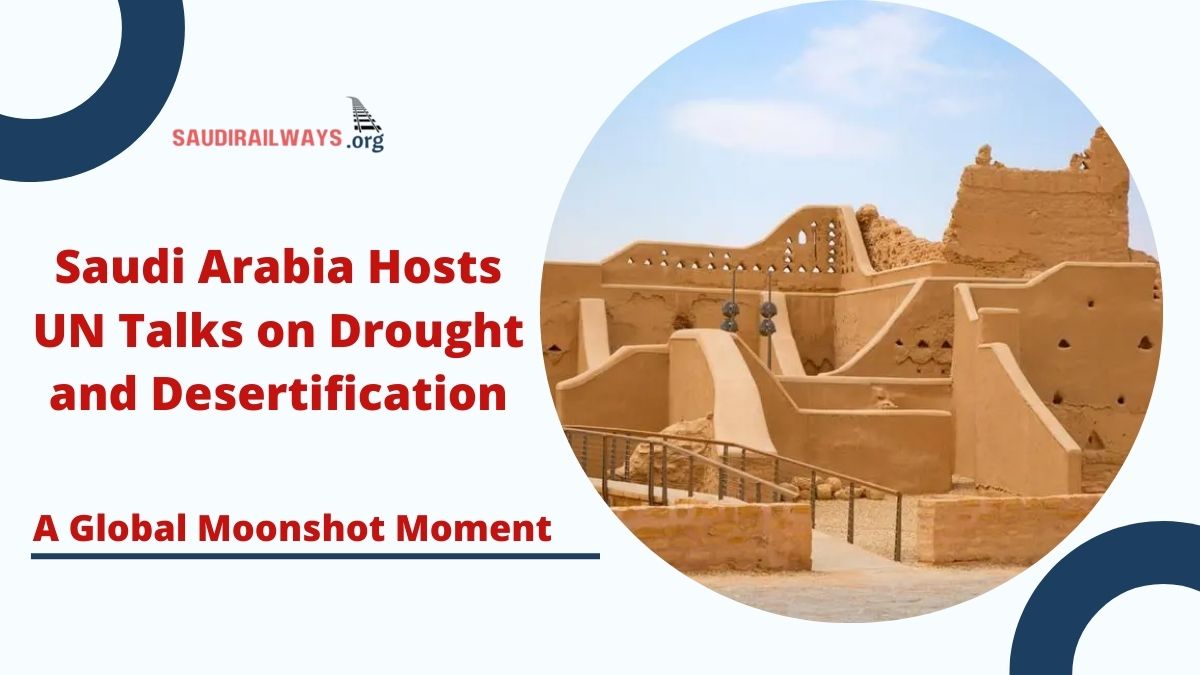Saudi Arabia is hosting the COP16 United Nations Convention to Combat Desertification (UNCCD) from December 2 to 13, 2024. This significant event gathers global leaders, policymakers, and activists to tackle the escalating challenges of land degradation and desertification.
Desertification—a severe form of land degradation—threatens ecosystems, food security, and livelihoods globally. It disproportionately affects arid regions like Saudi Arabia, where limited rainfall and harsh conditions exacerbate land deterioration.
Deputy Environment Minister Osama Faqeeha emphasized Saudi Arabia’s unique position:
“We are a desert country exposed to the harshest form of land degradation. Dealing with this challenge has been our reality for centuries.”

Contents
A Global Crisis Under the Spotlight
Land degradation has rendered 40% of global soils unproductive, impacting agriculture and accelerating food shortages. According to UN Secretary-General António Guterres, COP16 is a “moonshot moment” for the world to restore degraded land and combat drought.
During the 2022 UNCCD conference, nations pledged to restore 1 billion hectares by 2030. However, experts now suggest that 1.5 billion hectares must be rehabilitated to mitigate the impact of worsening droughts and land degradation.
Key Statistics on Land Degradation
Metric |
Global Impact |
Saudi Arabia’s Goal |
|---|---|---|
Degraded land globally |
40% of usable land |
40 million hectares |
Target for restoration |
1.5 billion hectares |
Several million hectares by 2030 |
Saudi Arabia’s Environmental Vision
Saudi Arabia has already restored 240,000 hectares through measures like reforestation, banning illegal logging, and expanding protected areas. National parks have surged from 19 in 2016 to over 500 today.
The kingdom’s commitment includes:
- Tree planting initiatives: Increasing green cover to combat desertification.
- Sustainable land practices: Promoting crop rotation, managed grazing, and wetland restoration.
- Community involvement: Encouraging global collaboration to combat the crisis.
Challenges and Global Perception
Critics often question Saudi Arabia’s role in global climate efforts due to its status as the world’s largest oil exporter. However, the nation’s direct vulnerability to desertification lends credibility to its leadership in addressing land degradation.
Patrick Galey, senior investigator for Global Witness, stated:
“Saudi Arabia’s exposure to desertification allows it to advocate with legitimacy, distinguishing this issue from broader climate debates.”
Despite its oil-centric economy, the kingdom aims to position itself as a global environmental leader through proactive policies and partnerships.
What to Expect at COP16
Thousands of delegates, including “close to 100” government ministers, will converge in Riyadh for this pivotal event. French President Emmanuel Macron will attend the One Water Summit on December 3, underscoring the event’s global significance.
The outcomes of COP16 will likely include:
- Accelerated restoration commitments: Nations will agree to more ambitious land restoration targets.
- Drought preparedness: Enhanced strategies for mitigating the impacts of future droughts.
- Civil society engagement: Constructive participation from campaigners and activists, in line with UN regulations.
A Call for Collective Action
UNCCD Executive Secretary Ibrahim Thiaw remarked on the urgency of the crisis:
“Global security is at stake. Land degradation threatens ecosystems, agriculture, and livelihoods worldwide.”
Saudi Arabia’s leadership at COP16 could set a transformative precedent, highlighting the importance of land restoration in addressing broader environmental challenges.
Click here to know more.

I am a passionate technology and business enthusiast, constantly exploring the intersection where innovation meets entrepreneurship. With a keen eye for emerging trends and a deep understanding of market dynamics, I provide insightful analysis and commentary on the latest advancements shaping the tech industry.
